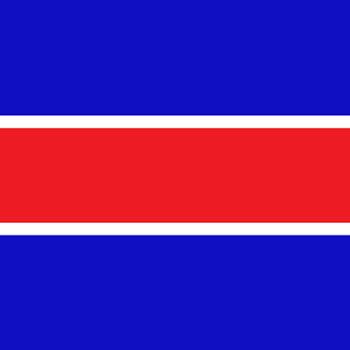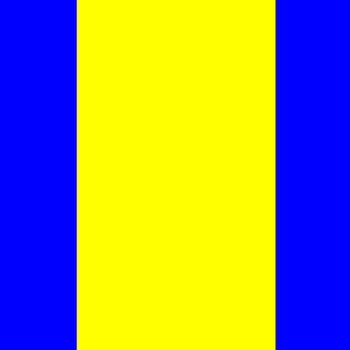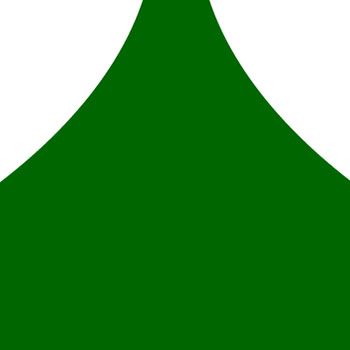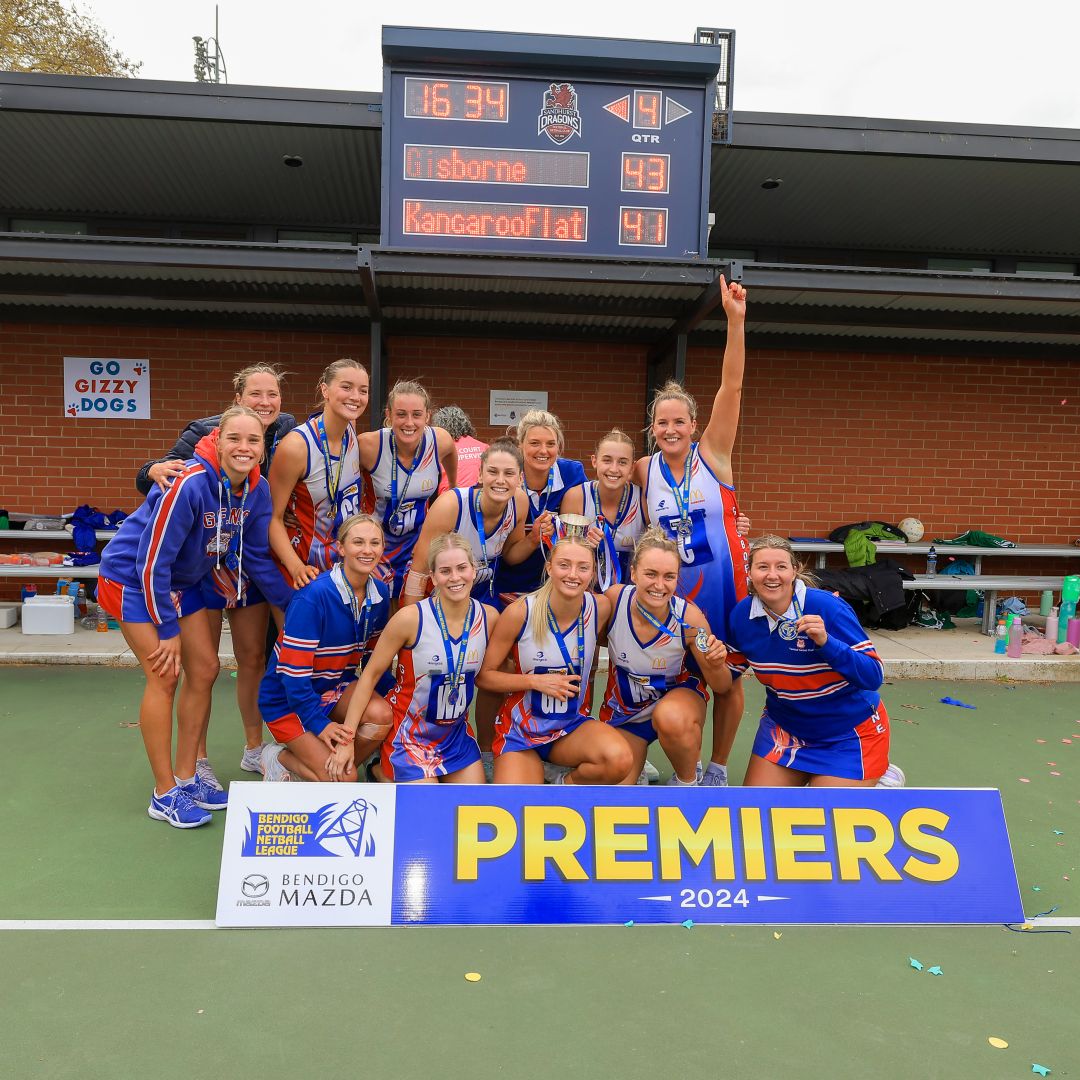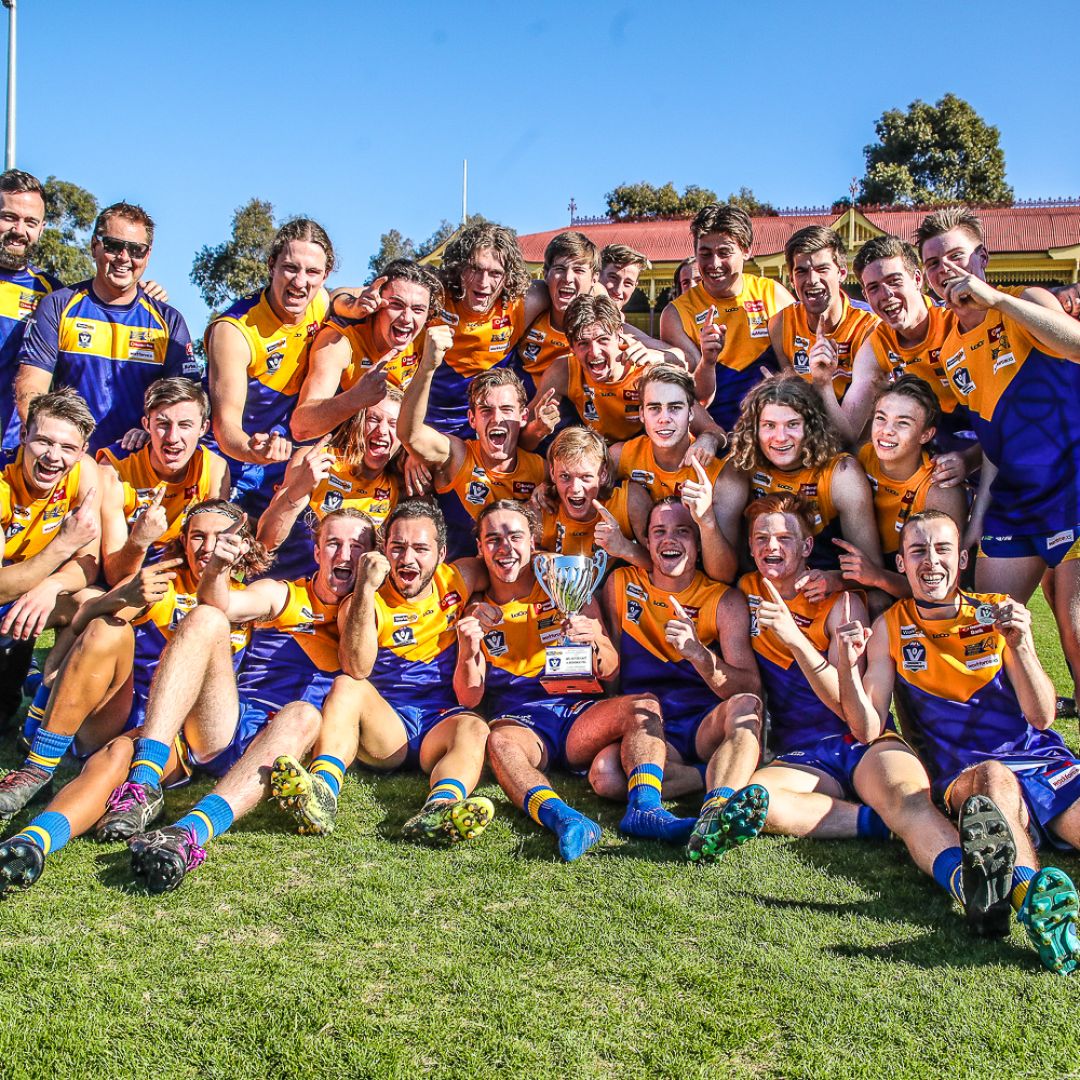Alan Martin: a star at both Square and South
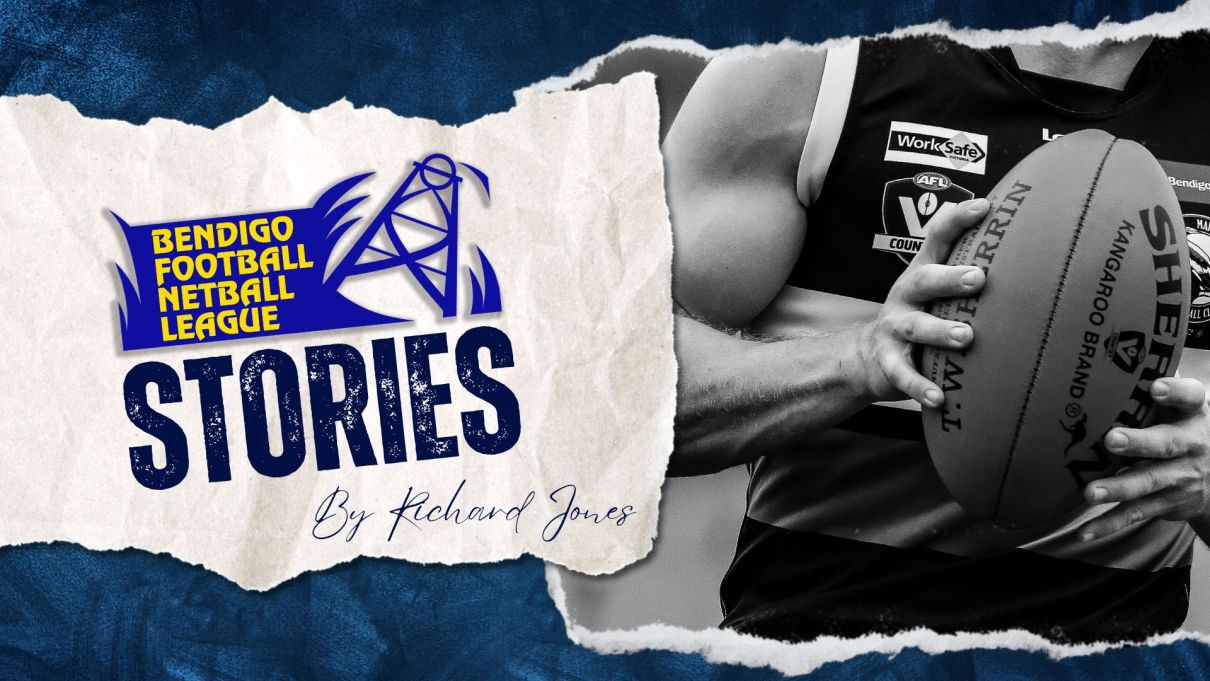
Alan Martin became a key figure in Bendigo football in the 1950s following a stellar career with VFL club Footscray.
He was an important member of the Bulldogs very first VFL premiership team in 1954 but after 105 games with Footscray, kicking eight goals, he’d had enough and wanted a quieter footy stage.
So in 1955 Bendigo footy was the winner when Martin signed on as coach of Golden Square
But first just a bit of background on Alan Martin. His senior career started at the tender age of 15 in the Stawell District F.L.
He mainly played at full-back and then after a season with Minyip headed off to the Ballarat Teachers’ College where he was recruited by the Golden Point club.
Alan was a premiership player, lining up again at full-back, in the Point’s 1947-1948 premiership sides.
He took out Point’s 1948 fairest and best award --- a great effort considering one of his teammates became known as the Geelong Flyer, Bobby ‘Woofer’ Davis.
So it was no surprise Alan’s abilities and skills came under close scrutiny from VFL clubs and it’s no exaggeration to record that most of the then 12 clubs had representatives treading the path to his front door.
He almost signed with Carlton but eventually it was the persistence of Footscray’s recruiters who won the day.
Why, you ask? Well, it turns out the Bulldog officials offered Alan board and lodgings and surprisingly he’d accepted even though he had to pay most of his own rent.
Just like Geelong’s Swan Hill recruit Fred Flanagan whose first glimpse of the MCG was the afternoon he ran out to make his maiden appearance, the first VFL game Alan Martin saw was the one he played in.
It was also at the MCG with Martin never even having been to Melbourne before in his adolescent days.
He was a Dogs’ regular over the next six seasons and was never dropped to the VFL Reserves.
Alan played in a number of field positions yet on the Western Oval it was on the half-back flank where he was most prominent.
The ’54 Bulldog defence was one of the tightest in the then VFL’s history and held the record of having the least number of points scored against them during home-and-away matches for many, many seasons.
Martin immediately impressed Footscray by winning the Best First Year player award and also the Best Clubman trophy.
In 1953 he was runner-up to star forward Jack Collins in the club fairest and best award with (eventual) AFL Legend Ted Whitten finishing third.
Sports journalists also had Alan under close watch. He was selected in the Sporting Globe’s 1953 Team of the Year, but missed out on Victorian state team selection because of a sprained ankle.
He was only 26 when, just married to wife Betty, they decided to make a change in work and footy north of the Great Divide.
Alan’s services were quickly seized upon by Golden Square.
Martin ended up coaching Golden Square for four years but wasn’t able to land a grand final spot, let alone a flag, for the Wade Street side.
Seven decades ago the Wade Street ground was particularly small.
“The team was always at a disadvantage when it had to play on the large QEO during finals time,” an Addy report said at the time.
Yet interestingly when Martin arrived at Wade Street the club had no official nickname.
The ex-Footscray star seized upon the opportunity he saw and quickly changed the ‘no nickname’ situation.
From 1955 onwards Golden Square became the BFL Bulldogs. And still are.
Alan Martin played 80-plus games for the Square and during his time there was also the BFL captain-coach in their 1957 and 1958 campaigns.
Even though the Blue and Golds lost the 1956 Country Championships grand final to Ballarat Alan won the overall fairest and best award at the carnival.
He played mainly as the centreman for both the Bendigo rep. side and Golden Square and capped off a memorable 1956 by finishing second --- by one vote --- to Rochester ruckman Frank Fitzpatrick in the Michelsen Medal count.
And then by 1959 it was time for a new challenge. So off to South Bendigo he went, courtesy of an intra-club transfer with no money changing hands.
Alan spent the next five years with the Bloods where he clocked up another 100 games.
He won South’s club fairest and best award in 1960 although a flag in the BFL continued to elude the crack player.
He captained South in 1961 and 1962 and while having a very busy footy life coached the Bloods’ Twos --- also in 1962 and then again in 1963.
At the age of 36 Alan Martin retired from competitive footy in 1963.
But he wasn’t finished with local football just yet.
For five years after his retirement Alan Martin wrote BFL match reports for the Bendigo Advertiser and for two years (1966-67) compered television’s ‘All Sports Show’ on TV8.
And then he became alternate chairman of the BFL Tribunal for ten years with retired magistrate Arthur Curtain. Alan was also a member of the Victorian Country Football League’s appeals board
His four sons all played for South Bendigo at various times, too.
Incidentally going back to that ’54 Bulldogs VFL premiership win Alan had played an important role in the Dogs’ defence alongside VFL/AFL Legend Ted Whitten.
Away from footy Alan served as principal at the Eaglehawk North Primary School for a long period of time and in civic affairs was a councillor with the old Strathfieldsaye Shire Council for nine years.
Before I took up the Addy’s position as sports editor in 1979 I’d served 18 months as council affairs reporter.
So I’d been present in the old Shire Hall, reporting on Alan’s tenure especially when he was the president at Strath Shire for one term.
From memory most meetings passed reasonably smoothly although, as I recall and as is the case in many rural council affairs, there was the occasional bit of fiery debate.
As president of Strathfieldsaye Shire Alan smoothed matters over pretty promptly though.
And of course, before I forget, Alan Martin was inducted into the BFL Hall of Fame at the very first function way back in 1986, a season which marked the BFL’s 125th year.
The only other South Bendigo inductee in the initial group of 20 was rover Colin Rice, the Bloods’ 1968 Michelsen Medallist and their 1969 premiership coach.
Naturally Alan’s name is up on the Bloods’ honour boards.
Sadly, though, Alan Martin passed away in 2004 aged 76.


